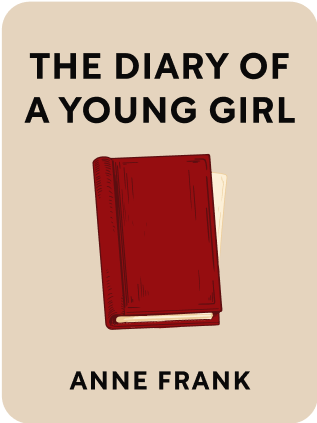

This article is an excerpt from the Shortform book guide to "The Diary of a Young Girl" by Anne Frank. Shortform has the world's best summaries and analyses of books you should be reading.
Like this article? Sign up for a free trial here .
How did Anne Frank describe her mother? What was their relationship like?
Most of Anne’s recollections about her mother were rather negative, focusing on their constant conflicts and disagreements. As time went on, Anne tried to have sympathy for her mother but had a hard time because of her mother’s critical views of Anne and her behavior.
Read about Anne Frank’s mother, Edith Frank, and what Anne thought of their relationship.
Anne Frank’s Mother: Edith Frank
For Anne Frank, her mother was one person she constantly found herself in conflict with. She believed that her mother didn’t understand her and thought that she went out of her way to shame her. Anne’s mother would often tell her that she was foolish and arrogant. For example, one time, they were talking about the proper term to refer to maids and domestic helpers. When Anne disagreed with her mother, her mother proceeded to tell Anne that she wasn’t a lady and that she spent too much time thinking about the future.
Anne would often cry herself to sleep and couldn’t understand why she constantly felt the need to point out her shortcomings. Her mother would often tell her that she should behave like her sister, Margot. However, Anne knew that she wasn’t anything like her sister, nor did she want to be. She thought Margot was too timid and weak-willed. Anne wanted to be outspoken, not passive.
As time went on, the fights between Anne and Edith continued. One night, Edith told Anne that her father was busy and that she’d like to be the one to listen to her prayers that night. Anne rejected her mother because she didn’t want to pray with someone she didn’t want around because it would be hypocritical.
With time, Anne’s perspective on her mother began to change. In January, she went through old diary entries and admitted that she had been harsh in her depiction of her mother. She believed that she lacked respect for her mother because she treated Anne and Margot more like friends than children. For example, when Anne would be upset or cry, her mother tended to poke fun at her emotions rather than provide support and guidance. Once, when Anne was younger, her mother had laughed at her when she got upset about not being able to join her and Margot for a trip to the store. Though the incident was relatively trivial, it left a mark on Anne.
Anne didn’t believe that her father loved her mother initially. In fact, she believed that her father asked her to marry him because he thought that she’d make a good wife. While she did maintain the “wifely duties” expected of women at the time, Anne believed that her mother was never truly happy because she knew that she’d never have all of her husband’s affection. She tried to have sympathy for her mother but had a hard time because of her mother’s critical views of Anne and her behavior.

———End of Preview———
Like what you just read? Read the rest of the world's best book summary and analysis of Anne Frank's "The Diary of a Young Girl" at Shortform .
Here's what you'll find in our full The Diary of a Young Girl summary :
- What Nazi occupation looked like from the perspective of a young Jewish girl
- How Anne Frank had some normal teenage experiences while in hiding
- How the hidden residents coped with the stress






